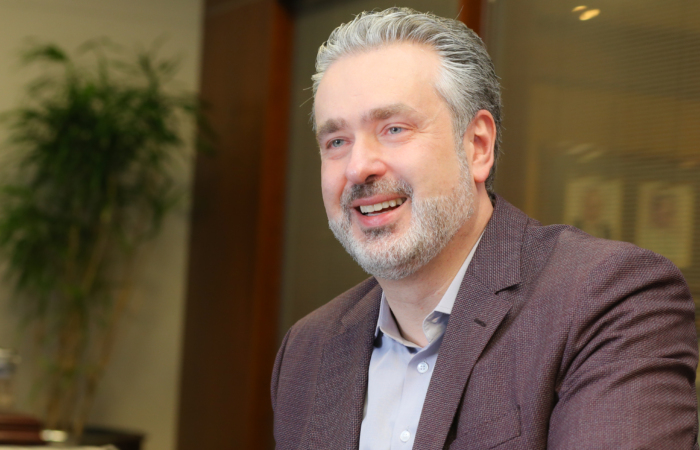As COP 30 approaches on the calendar, reflecting on the climate emergency and its relationship with the sustainable economy and the journey of reputation building is essential to act in time for the event taking place in Belém. Therefore, Reputation Feed heard the vice president of the ESG Business Council of Federation of Industries of Rio de Janeiro (Firjan), Claudia Guimaraes.
She warns that, for the business sector, COP 30 represents an opportunity for competitiveness, in addition to greater access to financing and adaptation to new environmental requirements. However, Brazil, including its private sector, has important environmental issues to address before the event takes place to establish itself as a strategic player in the global climate agenda..
Read the main excerpts from the interview below:
.

How important is COP 30 for the business sector and for Brazil as a protagonist in climate discussions? What practical results can we expect from the event?
COP 30 will be crucial in positioning Brazil as a protagonist in climate negotiations, driving green investments, sustainable innovation and carbon market regulation. For the business sector, it represents an opportunity for competitiveness, access to financing and adaptation to new environmental requirements.
What are the main challenges that the Brazilian private sector needs to face to reach COP 30 with more competitive advantages as a global player in a sustainable economy?
It is very important that the Brazilian private sector, in the context of the COP, can overcome structural challenges to be competitive in a sustainable economy. We are talking, for example, about the transition to circular economy models, which still face regulatory barriers to practical implementation.
“The adoption of ESG practices – environmental, social and governancea – requires greater maturity and adaptation from the productive sector.”
The qualification of the workforce also needs to evolve to meet the demands of the new green economy. Another equally important point is the high cost of capital, which can hinder investments in innovation and sustainability. We need to overcome these issues to allow Brazil to position itself as a strategic player in the global climate agenda. Also important are the need for maturity in new public policies and business strategies that are aligned with all Brazilian technical standards, NBRs and ISOs that govern the sector.
How does the private sector assess the impact of Brazil's reputation as a country that deforests the Amazon Rainforest on its own reputation and business?
Reputation is an intangible asset of great value, and it is recognized by the private sector. The fact that we have historical problems in Brazil, such as deforestation, means that the private sector seeks ways to ensure that its activities do not condone or contribute to this problem. Companies have been seeking to reverse this perception through conservation and restoration initiatives in various biomes. This is an important strategy for the sector in mitigating these impacts, which can be achieved by diversifying investments in different biomes and promoting sustainable practices that can strengthen reputation.
Could the loss of ESG's strength on the agenda of influential countries and large companies affect the results of COP 30?
This claim that ESG is losing traction globally is a narrative that reflects much more the positioning of geopolitics and the thinking of some specific leaders than an actual market trend. We must especially consider the impact of ESG on the financial market. Investors continue to value sustainable practices as an essential part of risk management. So, bringing this into the context of the COP, the climate agenda is very attentive to the geopolitical scenario and industries and companies in general continue to see competitive advantages in this transition to a low-carbon economy.
From a corporate reputation perspective, how can companies use ESG as a competitive differentiator and not just as a response to regulatory and market pressures?
I will give you a practical example of Firjan, which created a robust ESG council with the largest companies in the country operating in Rio de Janeiro, which was born with a very powerful representation. We have a survey demonstrating this commitment, plus the Firjan Sustainability Award. This brings about a journey of recognizing actions, projects, and practices with impact, with measurement. When you work with ESG, with practical social, environmental, and governance issues, this brings positive results and impacts with the creation of shared value. You create value for the company, for the shareholder, for the customer, for all stakeholders, for society.
How can companies effectively communicate their ESG initiatives to strengthen their reputation and engage their stakeholders?
We have actions to develop small and medium-sized companies along this path. The most structured companies have more mature institutional communication and publish their reports. Today, these reports are mandatory for publicly traded companies. However, many that are not also produce voluntary reports that are very consistent. These governance actions are important to demonstrate the materiality of the business and to work on stakeholder engagement.
What is the impact of COP 30 on energy transition projects and new clean energy sources in the country and how does this change contribute to the reputation of the Brazilian private sector?
I am speaking here as Firjan and I am proud to work for a 100% renewable company in the country, which has made a major contribution to this transition. In the transition to renewable energy sources, working to combat climate change, to reduce greenhouse gas emissions, we must have a more balanced energy model.
“In addition to mitigating the impacts of climate change, the energy transition must have a path to a fair, balanced future for all of society. This path must be taken into account from the perspective of the environment, our society and governance. And ESG brings this to the table.”
In addition to the environmental impact, this change is also linked to climate justice. We need to ensure that vulnerable communities have access to clean, affordable, and safe energy, as this helps to reduce socioeconomic inequalities.
Another point is the connection with the bioeconomy, allowing the sustainable use of natural resources. It is a competitive advantage in job creation, innovation, and development. We already have ways of developing without compromising ecosystems, but there is still potential for expansion.
Clovis Malta is a journalist
clovis.malta@ankreputation.com.br


